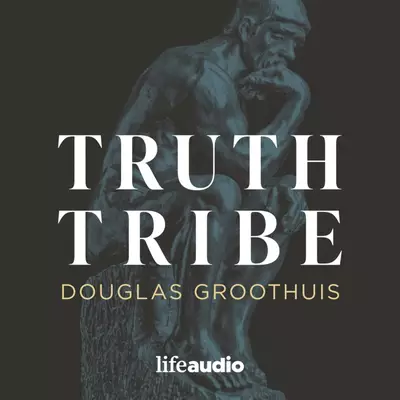
Listen on Your Favorite App
Truth Tribe with Douglas Groothuis
Douglas Groothuis
Truth Tribe with Douglas Groothuis is a podcast dedicated to finding the truth through reason, and evidence about what matters most. Our subjects include how to defend the Christian faith (through apologetics), biblical ethics, and social issues.
Listen on Your Favorite App
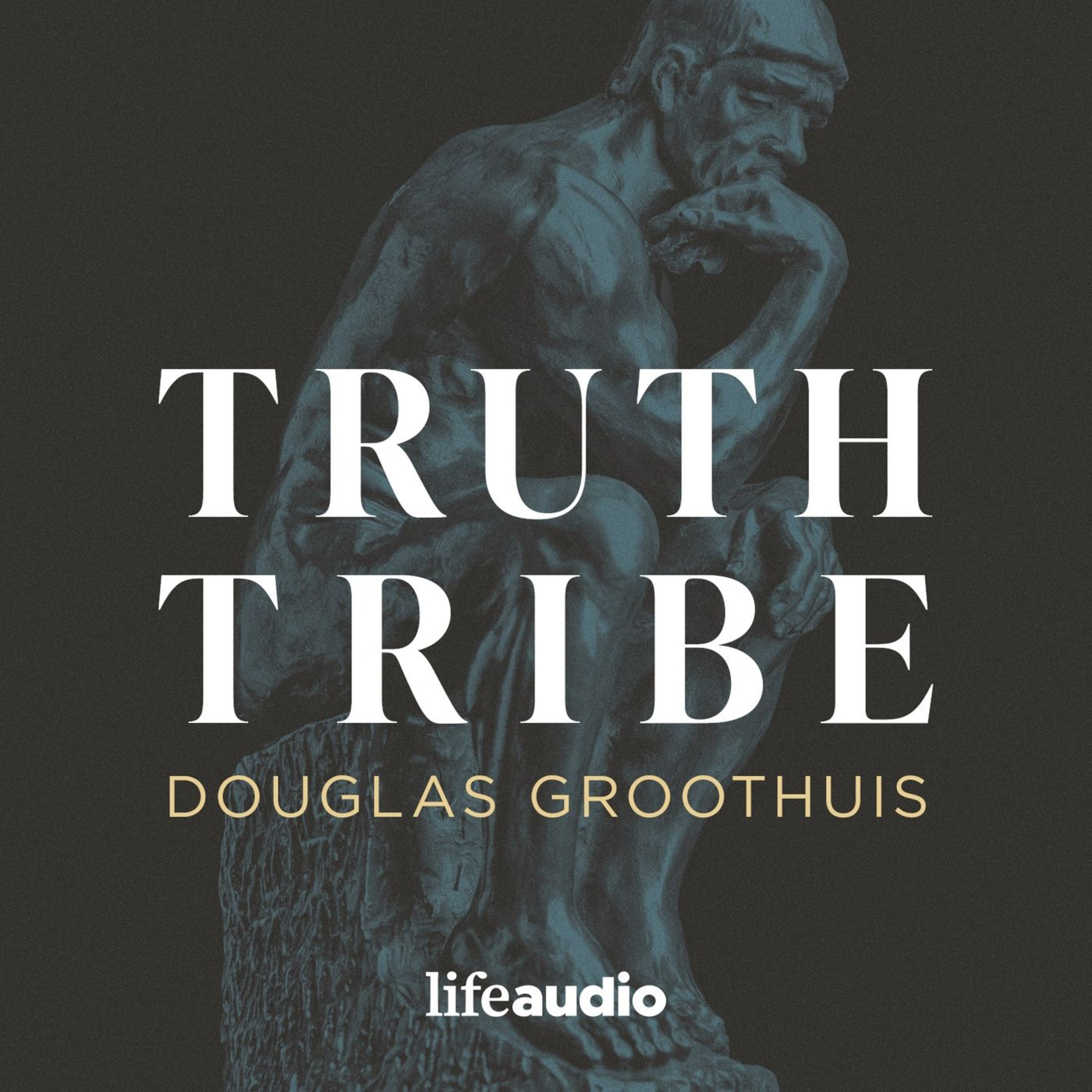
Identity and Gender: What Should a Christian Think about Gender Ideology?

February 6, 2023 - 20 min
Men are so inevitably mad that not to be mad would be to give a mad twist to madness—Blaise Pascal.[1]Topics covered:1. Who are You? (The Who)2. Roots of Identity Revolution and Gender Ideology 3. Who You Are 4. The Bible on Gender5. A Christian Response (Romans 12:1-2; 2 Corinthians 10:3-5)[1] Pascal, Blaise. Pensées (Penguin Classics) (p. 120). Penguin Books Ltd. Kindle Edition. Resources1. “John Money and the Origins of Gender Theory” (five-minute video): https://www.youtube.com/watch?v=tBGrP3AP0_Y. 2. Douglas Groothuis, Fire in the Streets (Salem Books, 2022). On critical race theory, but relates to gender ideology.3. Douglas Groothuis, Truth Decay (InterVarsity Press, 2000). Explains the decline in the idea of truth, which is a key feature of gender ideology. 4. Douglas Groothuis, Christian Apologetics, 2nd ed. (InterVarsity Academic, 2022).5. Francis Schaeffer, The God Who is There, signature edition (1968; InterVarsity, 2020).6. Francis Schaeffer, How Should We Then Live? (Crossway). The big picture on Western culture and its decline. Also a film series, which is on YouTube.7. Nancy Pearcey, Love Thy Body: Answering Hard Questions About Life and Sexuality (Baker Books, 2017).8. Carl Trueman, The Rise and Triumph of the Modern Self (Crossway, 2020).9. Carl Trueman, Strange New People (Crossway, 2022).10. Matt Walsh, What is a Woman? (Daily Wire Press, 2022). See also the film, “What is a Woman?” which is excellent. Walsh often covers gender theory in his daily podcast, “The Matt Walsh Show.” Discover more Christian podcasts at lifeaudio.com and inquire about advertising opportunities at lifeaudio.com/contact-us.

Jazz, Common Grace, and Culture Care

January 30, 2023 - 24 min
There's a way of playing safe, there's a way of using tricks and there's the way I like to play, which is dangerously, where you’re going to take a chance on making mistakes in order to create something you haven't created before—Dave Brubeck, jazz pianist.I. Christianity and CultureA. Case study: jazz and Lutheran Pastor Smith1. Jazz and worldliness2. Abstention from jazz3. Restoration to jazzB. Creation mandate (Genesis 1:26-28; Psalm 8)C. The fall (Genesis 3; Romans 3)D. Christians in culture1. Reject and condemn; identify the fall (1 John 2:15-17)2. Affirm, conserve; recognize common grace (Philippians 4:8)3. Redeem, transform; extend the kingdom of God (Matthew 28:18-20; Acts 1:8). See Andy Crouch, Culture Making4. Culture care: a. Tending the garden (Genesis 2). See Makato Fujimura, Mark Labberton, Culture Care (InterVarsity Press, 2017). b. Salt and light “You are the salt of the earth. But if the salt loses its saltiness, how can it be made salty again? It is no longer good for anything, except to be thrown out and trampled underfoot.14 “You are the light of the world. A town built on a hill cannot be hidden.15 Neither do people light a lamp and put it under a bowl. Instead they put it on its stand, and it gives light to everyone in the house. 16 In the same way, let your light shine before others, that they may see your good deeds and glorify your Father in heaven.5. Common grace: non-saving grace given to cultures and individuals. See work of Abraham KuyperII. What Is Jazz That We Should be Mindful of It?A. It is no longer a “jazz age”B. I do not mean “smooth jazz” (sickly pseudo-jazz)C. Origins: Africa, slave songs, New OrleansUniquely American art formD. Originators: Louis Armstrong, Jelly Roll MortonE. Nature of jazz1. Swing: “It don’t mean a thing if it ain’t got that swing,” Duke Ellington 2. Syncopation: the offbeat as the right beat3. Improvisation: “Chops” developed through “time in the woodshed”4. Collaboration: “big ears”5. Mastering tradition: “standards”6. Virtuoso soloists: Louis Armstrong, Charlie Parker, Miles Davis, Duke Ellington, John Coltrane, Sonny Rollins, Pat Martino7. Jazz culture in Denver1. Jazz studies at Metro State, directed by Ron Miles, a trumpeter and Christian2. Dazzle Jazz: Jazz most days of the week and national acts about 3-4 times a monthF. Receiving jazz for what it is. 1. See C.S. Lewis, An Experiment in Criticism on “receiving,” not “using”2. Behold and receive: John Coltrane, “Alabama”III. How Jazz Can Shape Christian WitnessA. “Time in the woodshed” means developing your chopsDo your best to present yourself to God as one approved, a worker who does not need to be ashamed and who correctly handles the word of truth.—2 Timothy 2:15B. ImprovisationC. “Call and response”—dialogue Paul entered the synagogue and spoke boldly there for three months, arguing persuasively about the kingdom of God. But some of them became obstinate; they refused to believe and publicly maligned the Way. So Paul left them. He took the disciples with him and had discussions daily in the lecture hall of Tyrannus. This went on for two years, so that all the Jews and Greeks who lived in the province of Asia heard the word of the Lord—Acts 19:8-10D. Syncopation: “the sound of surprise” (Whitney Balliet) Jesus entered Jericho and was passing through. A man was there by the name of Zacchaeus; he was a chief tax collector and was wealthy. He wanted to see who Jesus was, but because he was short he could not see over the crowd. So he ran ahead and climbed a... Discover more Christian podcasts at lifeaudio.com and inquire about advertising opportunities at lifeaudio.com/contact-us.
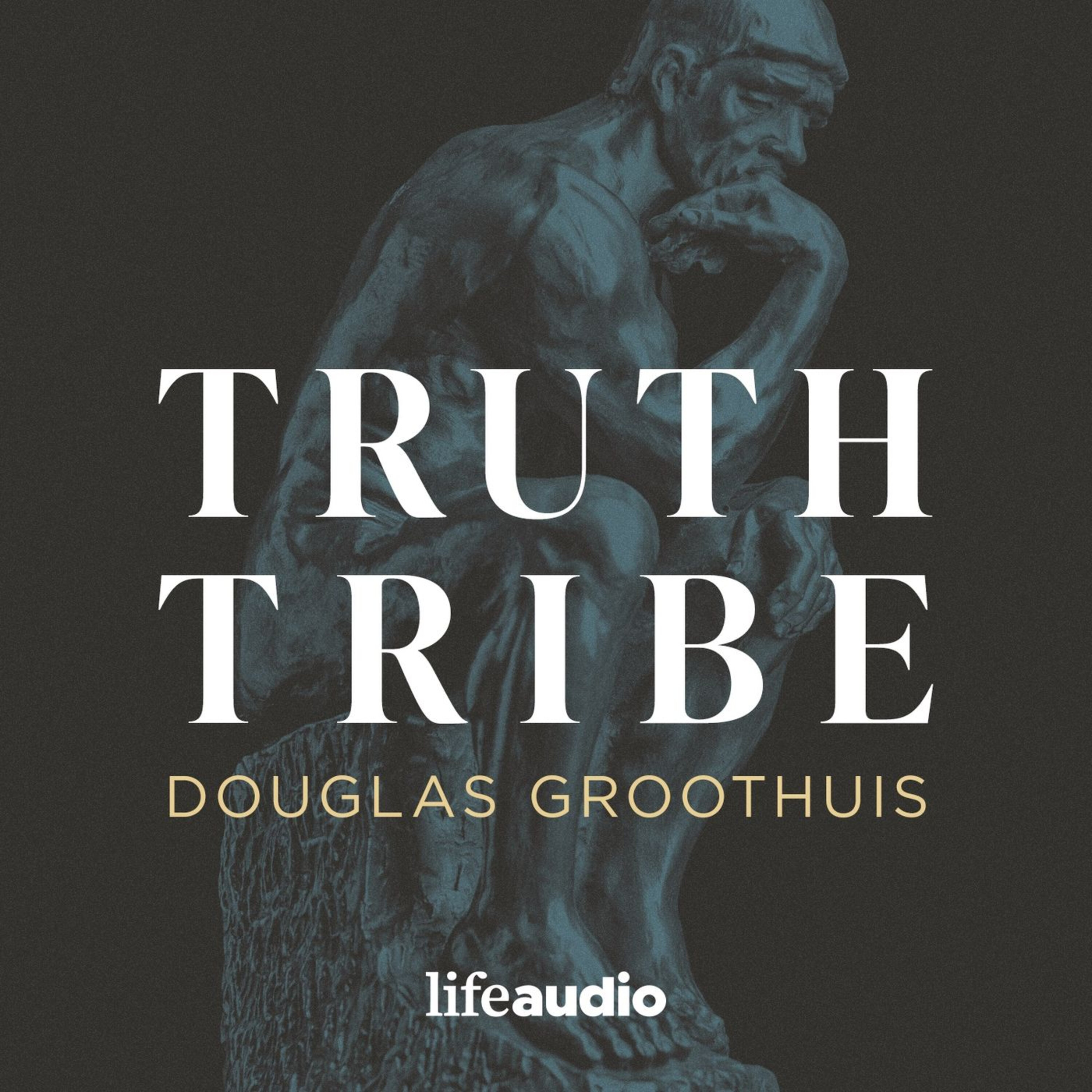
Lament as a Tonic for Suffering

January 16, 2023 - 25 min
Hope deferred makes the heart sick,but a longing fulfilled is a tree of life (Proverbs 13:12).How to Cope in Crisis and Chronic sadness?A. My conviction: Christianity is true, rational, and pertinent to whole of life. See Douglas Groothuis, Christian Apologetics; see especially, “The Problem of Evil” chapterB. Yet there is evil, pain, suffering, and lamentC. But, we can smelt, squeeze, and sculpt meaning out of suffering through divine loveI. Lament: A Tonic for Suffering A. A tonic, not a cure (in this life)What is biblical lament?1. The anguished cry of sorrow, grief, and often anger made before God and with hope of resolution. Lament is caused the loss of a something good or by the fear of the loss of a good thing, such as justice, health, or a loving relationship. One may lament over oneself, others, or the creation itself.a. Negro spirituals, “Sometimes I Feel like a Motherless Child,” and the blues, “Motherless Children.”b. Sixty Psalms of lament (6, 13, 22, 39, 88, 90, 137, etc.)c. Book of Job: We are “born for trouble as the sparks fly upward” (5:7)d. Ecclesiastes 9:11 (KJV)I returned, and saw under the sun, that the race is not to the swift, nor the battle to the strong, neither yet bread to the wise, nor yet riches to men of understanding, nor yet favour to men of skill; but time and chance happeneth to them all.2. Christ’s absolute suffering on the Cross for redemption: lament of all laments redeems the cosmosa. “My God my God, why have you forsaken me”? (Matthew 27:46; from Psalm 22)b. “Come lift up your sorrow and offer your pain. Come make a sacrifice of all your shame. There in your wilderness, he is waiting for you to worship with your wounds for he’s wounded, too.” Michael Card, from “The Hidden Face of God” recording (2006)c. Jesus: “It is finished” Not finished for us, though—yetd. Participating in Christ’s suffering through lament: Colossians 1:24Now I rejoice in what I am suffering for you, and I fill up in my flesh what is still lacking in regard to Christ’s afflictions, for the sake of his body, which is the church.Lightening the Load of SufferingA. Let grief take its course: Said to a mother grieving the suicide of her 19-year-old son: “It’s been six weeks”B. Let yourself and others weep; accept their tears; listen to their tearsYou have taken account of my wanderings; Put my tears in your bottle Are they not in your book? (Psalm 56:8; see Revelation 7:17).C. Don’t give cheap answers; don’t try to read God’s mind in the whys of sufferingWhen I applied my mind to know wisdom and to observe the labor that is done on earth—people getting no sleep day or night—then I saw all that God has done. No one can comprehend what goes on under the sun. Despite all their efforts to search it out, no one can discover its meaning. Even if the wise claim they know, they cannot really comprehend it (Ecclesiastes 8:16-17; see also Deuteronomy 29:29, Romans 11:33-36).D. Don’t try to cheer people up out of seasonLike one who takes away a garment on a cold day,or like vinegar poured on a wound,is one who sings songs to a heavy heart (Proverbs 25:20).E. Don’t make promises you cannot fulfill; keep your wordIt is better not to make a vow than to make one and not fulfill it (Ecclesiastes 5:5).F. Prayer as a way of life (Ephesians 6:10-19).G. Remember that lament for the redeemed is not forever (Revelation 21-22)Then I saw “a new heaven and a new earth,” for the first heaven and the first earth had passed away, and there was no longer any sea. I saw the Holy City, the new Jerusalem, coming down out of heaven from God, prepared as a bride beautifully dressed for her husband. And I heard a loud voice from the throne saying, “Look! God’s dwelling place is now among the... Discover more Christian podcasts at lifeaudio.com and inquire about advertising opportunities at lifeaudio.com/contact-us.
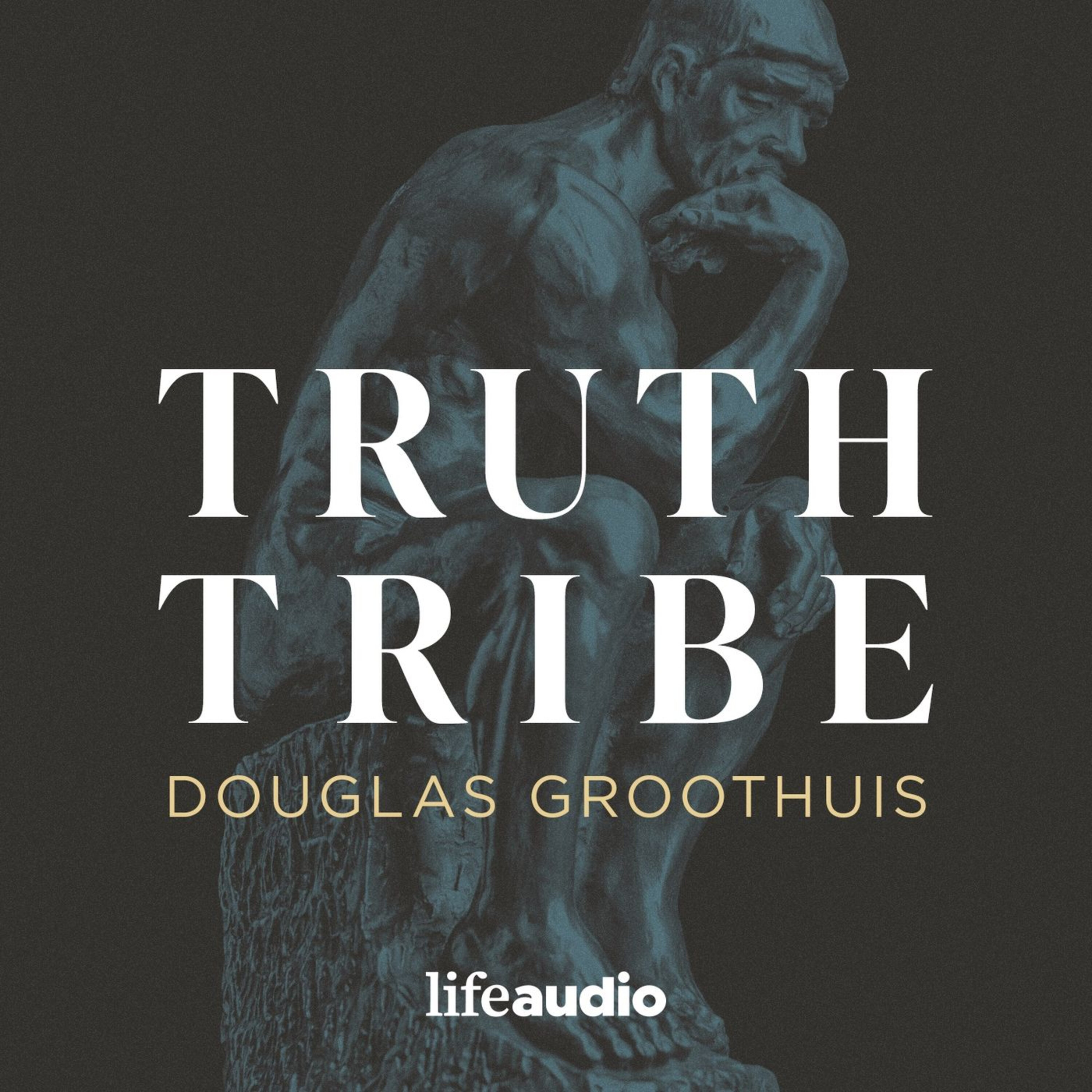
A Theology of Culture

January 9, 2023 - 20 min
Show Notes: A Theology of CultureDouglas Groothuis, Ph.D.Culture is where humanity shapes nature according to a worldview. Humans are to develop creation for the glory of God, since they bear God’s image (Genesis 1:26-28; Psalm 8). All cultural activity should be performed for the glory of God under the Lordship of Christ. As Abraham Kuyper said:There is not a square inch in the whole domain of our human existence over which Christ, who is Sovereign over all, does not cry, “Mine!”Francis Schaeffer further emphasized that all legitimate activities are spiritual.True spirituality covers all of reality. There are things the Bible tells us as absolutes which are sinful- which do not conform to the character of God. But aside from these things the Lordship of Christ covers all of life and all of life equally. It is not only that true spirituality covers all of life, but it covers all parts of the spectrum of life equally. In this sense there is nothing concerning reality that is not spiritual.We find three biblical themes for cultural engagement under the Lordship of Christ.I. Separation/antithesis: Against the world, for the world, under God. Recognize the radical fallenness of the world and its systems (Psalm 1; 1 John 2:15-17). When everything is moving at once, nothing appears to be moving, as on board ship. When everyone is moving towards depravity, no one seems to be moving, but if someone stops he shows up the others who are rushing on, by acting as a fixed point.” Blaise Pascal, Pensées.A. Paul at Athens: One transcendent creator; no idols; resurrection of the dead (Acts 17:16-43)B. Danger: legalistic separatismC. Don’t compromise with the squalor of popular culture: “Game of Thrones,” etc. Ken Myers, All God’s Children and Blue Suede Shoes: Christians and Popular Culture.D. Bearing witness philosophically against postmodernism. See Douglas Groothuis, Truth Decay (IVP, 2000)1. Defend a biblical view of truth2. Revealed/authoritative—not constructed or contingent all the way down3. Objective—not merely subjective4. Absolute—not relative, conventional5. Universal—not provincial, parochial6. Antithetical—not synthetic, irresponsibly eclectic, ad hocII. Conservation/common grace: “He Shines through all that’s fair” A. Matthew 5:45: Sun shines and rain falls on just and unjustB. Be discerning and relentless scavengers for common grace; philosophical detection of truth and rationality outside the fold; put back material where it belongs (James Orr)C. Plunder the Egyptians but don’t worship their idols (Augustine)D. Dangers: accommodating the worldly (James 1:27; 1 John 2:15-17)E. Common grace: The American system of government. See Douglas Groothuis, Fire in the Streets1. Separation of powers: sin and reform2. Representational and constitutional government: ordered liberty under law3. Five radiant freedoms of the first amendment: law giving room for religion and the preaching of grace in ChristFirst Amendment: Congress shall make no law respecting an establishment of religion, or prohibiting the free exercise thereof; or abridging the freedom of speech, or of the press; or the right of the people peaceably to assemble, and to petition the Government for a redress of grievances.III. Transformation: “Crown him with many crowns,” crown rights of King Jesus: Psalm 2; Matthew 28:18-20; 2 Cor. 10:3-5A. Permeate society and claim as much as possible for Christ and his Kingdom.B. Danger: triumphalism, zeal without knowledgeC. The “humble prophet,” neither dogmatist, nor relativist; regaining a resonate, prophetic and intelligent voice in the public square1. Knows, exegetes the culture (I Chron. 12:32; Tribe of Issachar)2. Knows, exegetes the... Discover more Christian podcasts at lifeaudio.com and inquire about advertising opportunities at lifeaudio.com/contact-us.

A Philosophy of Technology

January 2, 2023 - 22 min
Discover more Christian podcasts at lifeaudio.com and inquire about advertising opportunities at lifeaudio.com/contact-us.

An Introduction to Biblical Ethics

December 26, 2022 - 20 min
Christian Ethics and the BibleA. The Bible and ethics. See J. Douma, Responsible Conduct (Presbyterian and Reformed, 2003)Bible at completely true in all it affirms, the standard for truth (sola Scriptura), and applicable to all of lifeBible as a guide (Psalm 119; 2 Tim. 3:15-16), the ultimate authority.Bible as a compass, provides and orientation, but not specifics on some matters; a way of life (Proverbs [wisdom and folly], Ecclesiastes, Deuteronomy 30)Bible as a source or moral and immoral examples, narratives (Historical books of OT; Jesus in Gospels, Hebrews 11)Two errors in appealing to the Bible for ethics:1. Biblicism: the letter of Scripture without context and sense of placement in redemptive history. 2. Latitudinarianism: Scripture shorn of authority, diluted, distorted by contemporary tastes, preferences, orientations. Theological liberalism. See Nadia Bolz-Weber, Shameless, “progressive Christianity.”II. Three categories of lawCeremonial lawCivil law - When you build a new house, make a parapet around your roof so that you may not bring the guilt of bloodshed on your house if someone falls from the roof (Deuteronomy 22:8)Moral law: Ten CommandmentsIII. Three Uses of the Law (Calvin, Institutes, book 2, chapter seven)A. Constraint on evil (1 Tim. 1:9-10): barricadeB. Condemnation of sinners, pedagogical use (Galatians 3:24): mirror Lutherans emphasize this as the primary function.C. Guidance for the godly (Jer. 31:33; Romans 15:4; Heb. 10:16): yardstick IV. Uniqueness of Ten Commandments (Exodus 20:1-18; Deut. 5)A. Sinai Event itself occasioned by special signs (Exodus 19)B. Torah within the Torah: “summarily comprehends” the moral law (Westminster Larger Catechism)C. Emphasis on the Ten Commandments throughout Scripture D. Justification and sanctification V. Understanding the CommandmentsA. View in light of (1) original situation and (2) larger canonical setting, particularly the Sermon on the Mount (Matthew 5-7)B. Two tables of the Law (see Matthew 22:37-39)C. Eight principles for interpreting the Ten Commandments: Westminster Larger Catechism.Consider three1. What are the duties required?2. What at the sins prohibited?3. What are the blessings of obedience?VI. Pursue virtue; avoid vice (Matthew 5:1-16)A. Fruit of the Holy Spirit (Galatians 5)22 But the fruit of the Spirit is love, joy, peace, forbearance, kindness, goodness, faithfulness, 23 gentleness and self-control. Against such things there is no law. 24 Those who belong to Christ Jesus have crucified the flesh with its passions and desires. 25 Since we live by the Spirit, let us keep in step with the Spirit. 26 Let us not become conceited, provoking and envying each other (Galatians 5:22-26)B. Gifts of the Holy Spirit (1 Corinthians 12-14)C. Don’t let the gifts get ahead of the fruits: God’s work in you is prior and more important than God’s work through you (ministry)D. Works of the flesh (Galatians 5)19 The acts of the flesh are obvious: sexual immorality, impurity and debauchery; 20 idolatry and witchcraft; hatred, discord, jealousy, fits of rage, selfish ambition, dissensions, factions 21 and envy; drunkenness, orgies, and the like. I warn you, as I did before, that those who live like this will not inherit the kingdom of God (Galatians 5:19-21).VII. ConsequencesA. Do as much good as you can for as many as you for as long as you can without breaking God’s law or grieving the Holy Spirit.B. Blessings for obedience to covenant (Deuteronomy 8, 28, etc.)C. Be zealous for good works in the power of the Holy Spirit; zeal and knowledge, not one without the other D. For we are God's handiwork,... Discover more Christian podcasts at lifeaudio.com and inquire about advertising opportunities at lifeaudio.com/contact-us.

An Interview on Critical Race Theory and the Christian Worldview

December 19, 2022 - 64 min
Learn more about the Defend Conference: https://www.defendthefaith.net/To learn more about Aaron and his podcast Filter: https://www.aaronshamp.com/podcast Discover more Christian podcasts at lifeaudio.com and inquire about advertising opportunities at lifeaudio.com/contact-us.
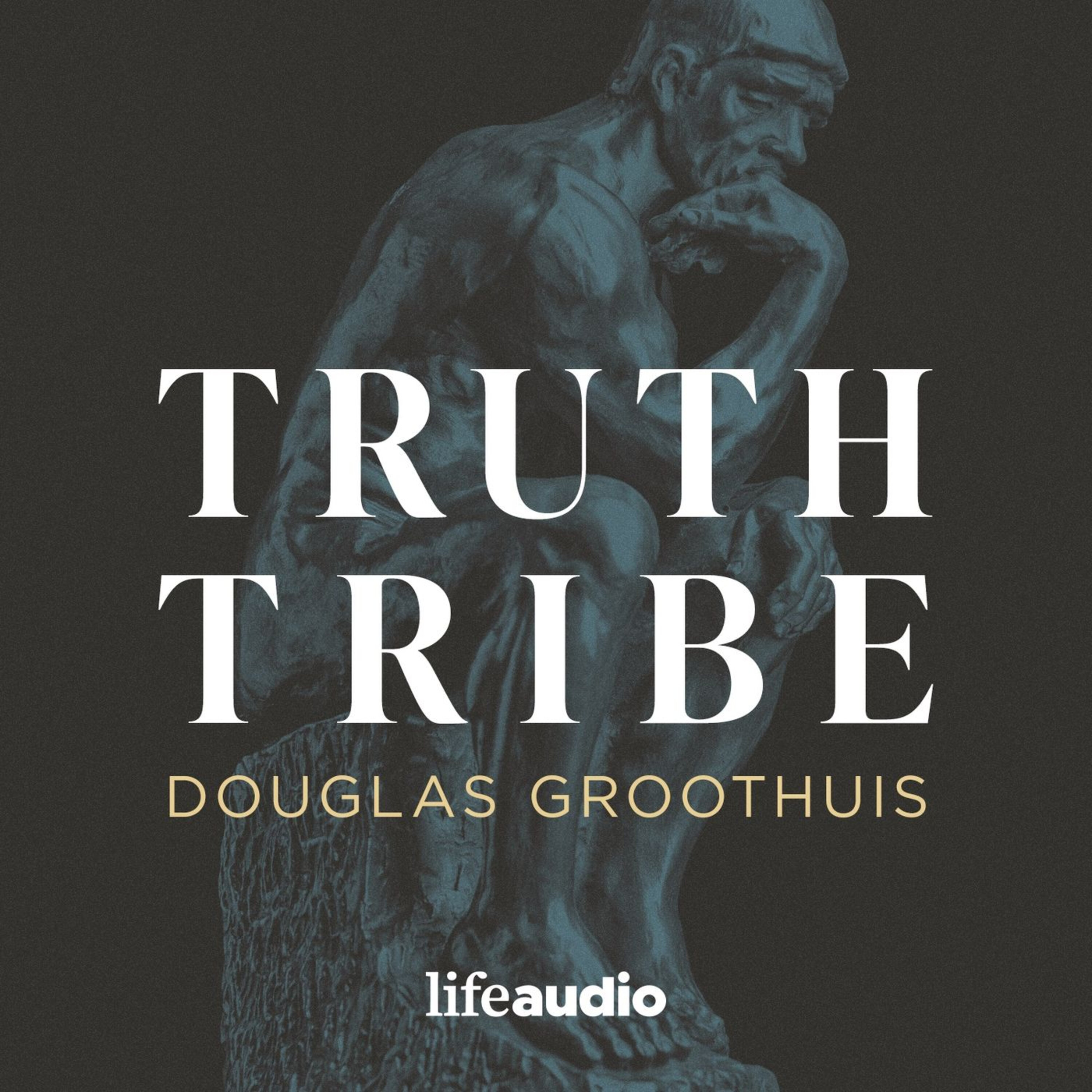
Apologetics in a Nutshell

December 15, 2022 - 45 min
(See also the article of the same name at The Christian Research Journal: https://www.equip.org/articles/christian-apologetics-in-a-nutshell.)I. The Need for Defending Christianity as True, Rational, and Pertinent: ApologeticsA. Biblical case for rational spirituality (Matthew 22:37-39; 1 Peter 3:15-16; Jude 3; 2 Corinthians 10:3-5)B. Defending objective truth of Christian worldview in humility and dependence on God (Luke 9:23-26)C. Showing existential significance and consequence of Christianity. Prudential reasoning (Pascal)D. Being wise as serpent, innocent as a dove, bold as a lion (Matthew 10:16; Proverbs 28:1) Discover more Christian podcasts at lifeaudio.com and inquire about advertising opportunities at lifeaudio.com/contact-us.
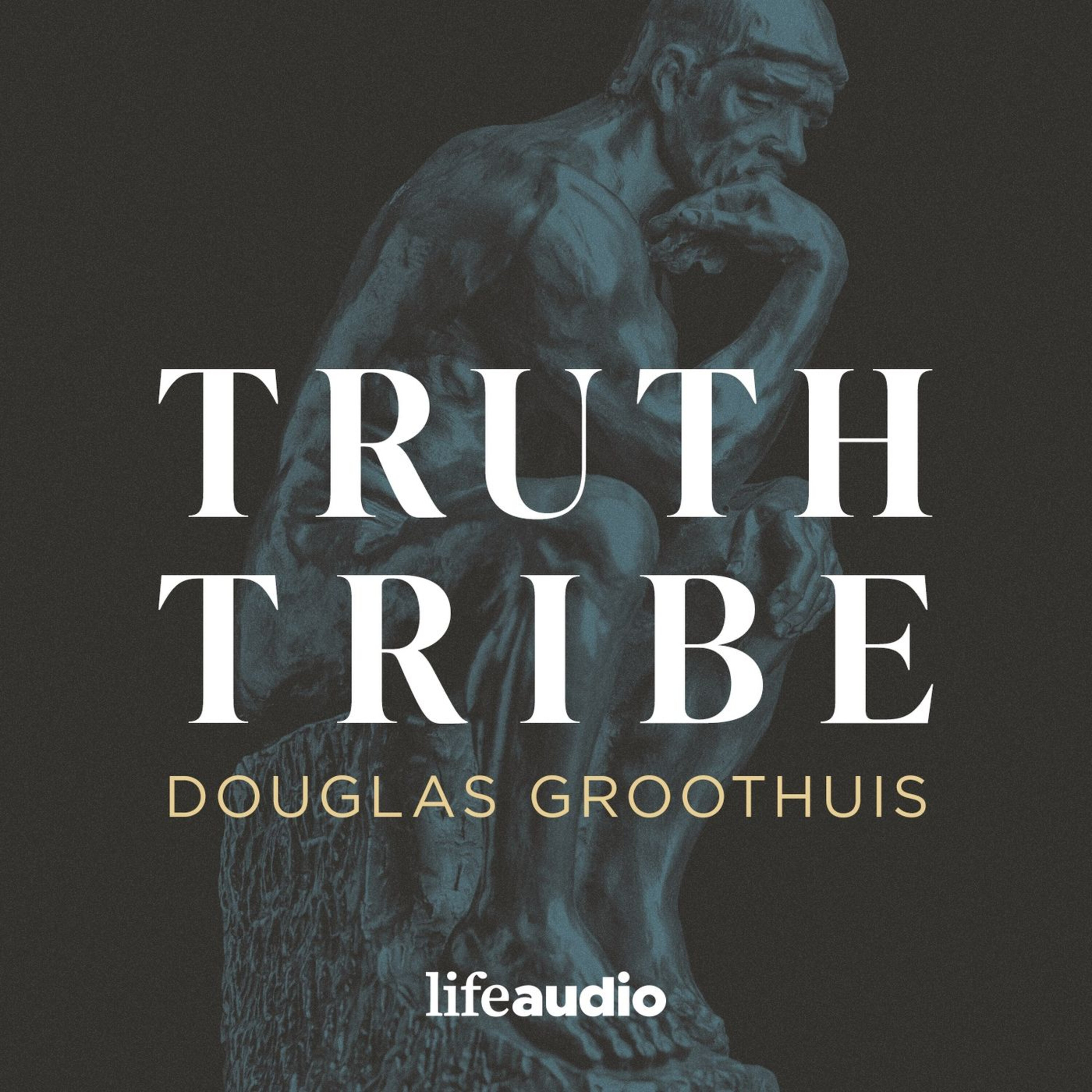
8 Important Statements about the Christian Worldview

November 28, 2022 - 27 min
This episode looks at the concept of a Christian worldview or philosophy of life through several propositions, culled from James Sire’s classic book, The Universe Next Door: A Basic Worldview Catalogue. These are the statements. 1. God is infinite and personal (triune), transcendent and immanent, omniscient, sovereign and good (Exodus 3:14; Matthew 28:18-20).2. God created the cosmos ex nihilo with a uniformity of cause and effect in an open system (Genesis 1:1; John 1:1-2).3. Human beings are created in the image of God (Genesis 1:27) and thus possess personality, self-transcendence, intelligence, morality, gregariousness and creative. 4. Human beings can know both the world around them and God himself because God has built into them the capacity to do so and because he takes an active role in communicating with them (Genesis 1-2; Psalm 8).5. Human beings were created good, but through the Fall the image of God became defaced, though not so ruined as not to be capable of restoration; through the work of Christ, God redeemed humanity and began the process of restoring people to goodness, though any given person may choose to reject that redemption (John 3:1-18; Romans 5:1-8).6. For each person death is either the gate to life with God and his people or the gate to eternal separation (hell) from the only thing that will ultimately fulfill human aspirations. See Matthew 25:31-46.7. Ethics is transcendent and is based on the character of God as good (holy and loving). Exodus 20:1-8; Matthew 22:37-40.8. History is linear, a meaningful sequence of events leading to the fulfillment of God’s purposes in history (1 Corinthians 15).Touchstone proposition for the Christian worldview: “The universe (originally good, now fallen and awaiting its divine restoration) is created by the Triune God, who has revealed himself in nature, conscience, Scripture, and through the Incarnation for the purpose of salvation and judgment that God might be glorified in all things.” Further Resources:1. DouglasGroothuis.com. 2. Douglas Groothuis, “The Christian Worldview,” Christian Apologetics: A Comprehensive Case for Biblical Faith, 2nd ed. (InterVarsity Academic, 2022).3. Ronald Nash, Worldviews in Conflict (Zondervan Academic, 1992). 4. Nancy Pearcey, Total Truth (Crossway, 2005).5. James Sire, The Universe Next Door: A Basic Worldview Catalogue (InterVarsity Press, 2020). Discover more Christian podcasts at lifeaudio.com and inquire about advertising opportunities at lifeaudio.com/contact-us.
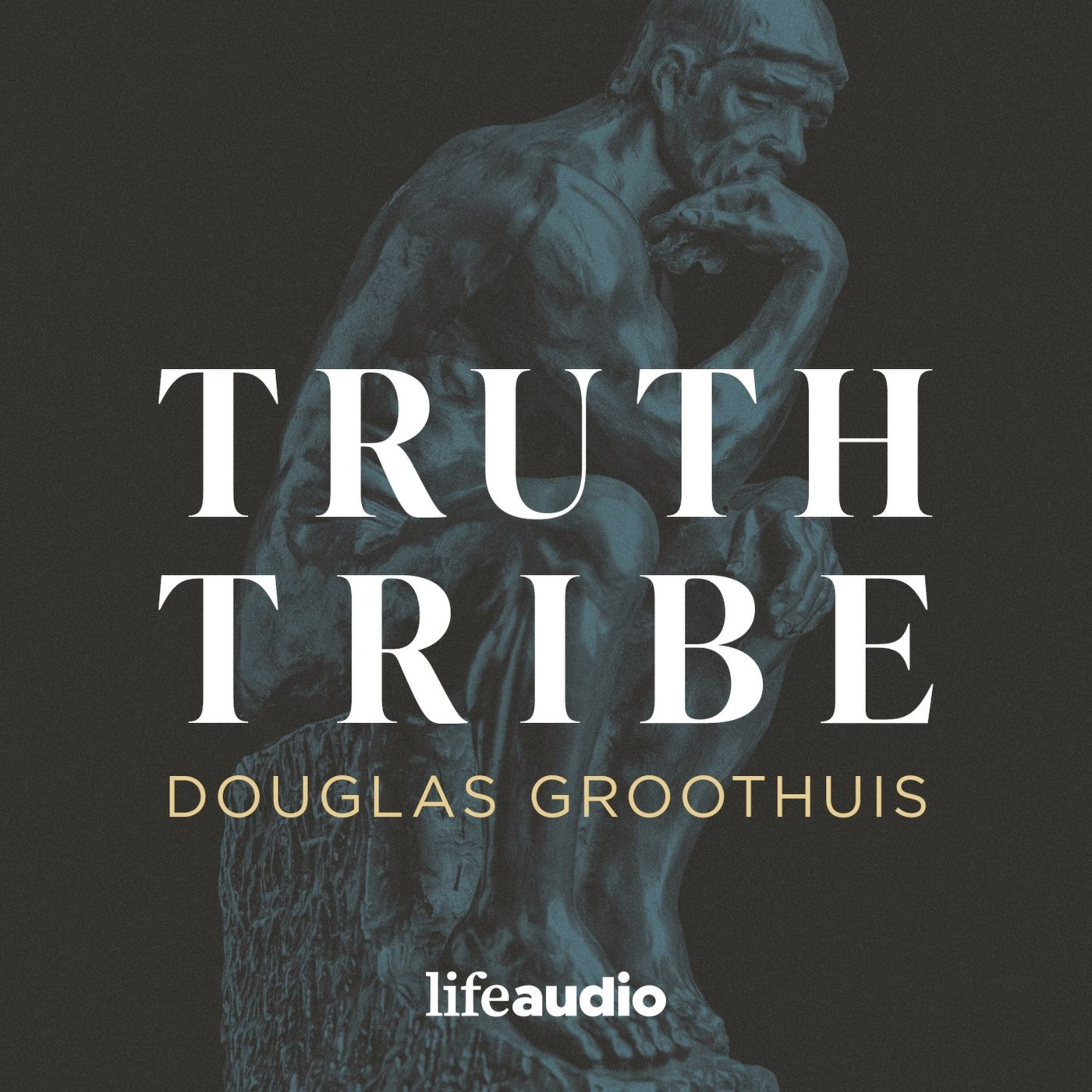
Introducing Truth Tribe (My Testimony and Mission)

November 21, 2022 - 21 min
This episode acquaints you with me briefly. I speak of my conversion and ministry since then. Early on, God showed me that he wanted me to teach, preach, and write. I endeavor to bring the truth of Christianity to the world and to build up the church in the faith given once for all to the saints (Jude 3). Because of my work in philosophy and apologetics, my story can be an apologetic for Christianity. I make this case in “Autobiography as Apologetic,” published in The Christian Research Journal: https://www.equip.org/articles/autobiography-as-apologeticIn the podcast, did not mention all the books I have published in the show, so here they are.1. Unmasking the New Age. InterVarsity Press, 19862. Confronting the New Age. InterVarsity Press, 1988.3. Revealing the New Age Jesus. InterVarsity Press, 1990.4. Christianity that Counts. Baker Books, 1994.5. Deceived by the Light. Harvest House, 19956. Jesus in an Age of Controversy. Harvest House, 1996.7. The Soul in Cyberspace. Baker Books, 1997.8. Truth Decay. InterVarsity Press, 2000.9. On Jesus. Wadsworth, 2003.10. On Pascal. Wadsworth, 2003.11. Christian Apologetics, first edition. InterVarsity Press, 2011.12. Philosophy in Seven Sentences. InterVarsity Press, 2017.13. Walking through Twilight: A Wife’s Illness—A Philosopher’s Lament. InterVarsity Press, 2017.14. I Love You to the Stars (with Crystal Bowman). Kregel, 2021. A children’s book.15. Christian Apologetics, 2nd ed. InterVarsity Press, 2022. Contains eight new chapters.16. Fire in the Streets. Salem Book, 2022. 17. The Knowledge of God in the World and in the Word: An Introduction to Classical Apologetics (with Andrew Shepardson). Zondervan Academic. Due: December, 2022.In addition, I coedited, with James Sennett, In Defense of Natural Theology. InterVarsity Press, 2005. Discover more Christian podcasts at lifeaudio.com and inquire about advertising opportunities at lifeaudio.com/contact-us.
Meet Your Host

Meet Your Host
Douglas Groothuis, Ph.D., is Professor of Philosophy at Denver Seminary. He is the author of nineteen books, including Fire in the Streets (a critique of critical race theory or wokeness) and Christian Apologetics, A Comprehensive Case for Biblical Faith.
Follow Dr. Groothuis:
Website: https://www.DouglasGroothuis.com
Follow Dr. Groothuis:
Website: https://www.DouglasGroothuis.com